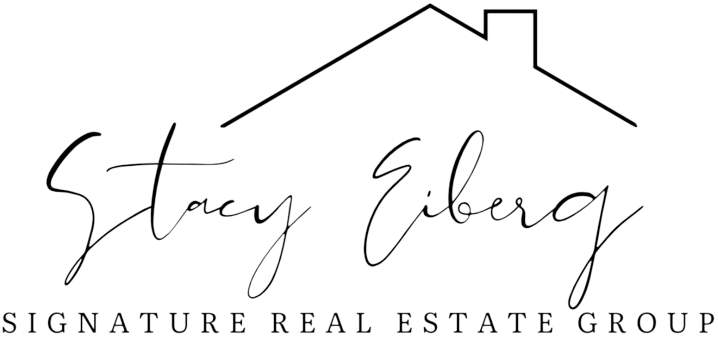Selling your house is a significant milestone, and finding the right real estate agent can make all the difference in achieving a successful and profitable sale. With so many agents to choose from, the process can seem overwhelming, but fear not – this guide is here to help you make an informed decision. From experience and local knowledge to communication skills and marketing strategies, you’ll discover valuable insights to ensure that your home-selling journey is smooth and successful.

Why You Need a Seller's Agent
Selling a home can be a complex and time-consuming process, which is why enlisting the services of a qualified seller’s agent is highly advisable. These professionals bring a wealth of expertise and resources to the table, ultimately working on your behalf to ensure a successful, speedy, and profitable sale. Here are some essential tasks that a seller’s agent will perform for you:
Pricing Strategy: Determining the right asking price is critical, and a skilled seller’s agent will conduct a thorough comparative market analysis (CMA) to assess market conditions, recent sales, and your property’s unique features.
Marketing Expertise: Effective marketing is a vital component to attracting potential buyers. Your agent will create a tailored marketing plan that may include professional photography, virtual tours, open houses, online listings, and more.
Negotiation Skills: Negotiating offers and counteroffers can be challenging. A seller’s agent will act as a buffer between you and the buyer, using their negotiation skills to secure the best possible deal.
Paperwork and Legalities: Real estate transactions consist of a significant amount of paperwork. An experienced agent will ensure that all paperwork is completed accurately and in compliance with local regulations.
Market Insights: Seller’s agents have their fingers on the pulse of the local real estate market. They can provide insights into market trends, buyer preferences, and neighborhood dynamics.
Staging and Presentation: Your agent may offer guidance on how to stage your house to make it more attractive to potential buyers. They can suggest minor improvements or repairs that can increase your home’s value and marketability.
Access to Networks: Seller’s agents have a network of contacts within the industry, including other agents, lenders, inspectors, and contractors.
Time and Convenience: Selling a home can be a time-consuming endeavor. Your agent will handle the day-to-day tasks of marketing, scheduling showings, and managing inquiries.
Emotional Support: Selling a house can be an emotional journey. A seller’s agent can provide valuable emotional support and a rational perspective, helping you navigate the ups and downs of the process.
A seller’s agent plays a pivotal role in ensuring a successful, speedy, and profitable home sale. Their expertise, marketing strategies, negotiation skills, and industry knowledge are essential assets that can save you time, reduce stress, and ultimately lead to a more favorable outcome when selling your house.
Finding the Right Real Estate Agent: Your Path to a Successful Home Sale
When embarking on the journey of selling your home, one of the most critical decisions you’ll make is choosing the right real estate agent. This decision can significantly impact the outcome of your sale in terms of speed, profitability, and overall satisfaction. To guide you through this process, we’ve compiled a comprehensive list of methods for finding a reputable real estate agent. From seeking referrals to checking credentials and trusting your instincts, this guide will help you navigate the path to selecting the perfect agent to assist you in achieving a successful home sale.
Referrals from Friends and Family: Seek recommendations from your trusted friends and family members who have had positive experiences with real estate agents. Their firsthand insights can be invaluable.
Online Reviews and Ratings: Utilize online platforms like Google, Yelp, Zillow, or dedicated real estate agent review websites to read reviews and ratings from previous clients, allowing you to gauge an agent’s reputation.
Local Real Estate Offices: Visit local real estate offices or agencies in your area to inquire about their top-performing agents. The staff can provide you with information and arrange meetings.
Attend Open Houses: Attend several open houses in your neighborhood or target area to meet and interact with real estate agents, which provides an opportunity to observe how they handle property presentations.
Real Estate Associations: Check whether the agent is a member of reputable real estate associations, such as the National Association of Realtors (NAR). Membership often indicates a commitment to professional standards.
Online Search: Use online real estate websites and directories to search for agents in your area. These platforms typically allow you to filter by location and specialties.
Social Media: Explore social media platforms like LinkedIn, Facebook, or Instagram to find real estate agents. Some agents use these channels to share insights into their work and showcase client testimonials.
Local Advertising: Pay attention to local real estate advertising, including yard signs, flyers, and advertisements. Take note of agents who are actively marketing properties in your neighborhood.
Local Networking Events: Attend local networking events or real estate seminars in your area. These gatherings provide an opportunity to meet agents and assess their knowledge of the local market.
Ask Other Professionals: Seek recommendations from other professionals in the industry, such as mortgage brokers, home inspectors, or real estate attorneys. They often have insights into reputable agents.
Check Licensing and Credentials: Verify that the agent is properly licensed and has no disciplinary actions against them. This information is typically available through your state’s real estate licensing board.
Local Knowledge: Choose an agent with a deep understanding of your local market, including neighborhood-specific trends and property values. Local expertise is crucial for accurate pricing and marketing.
Specialization: Consider an agent who specializes in your specific type of property, such as condos, luxury homes, or commercial real estate. Specialized knowledge can lead to better results.
Communication Skills: Assess an agent’s communication skills during initial interactions. Effective communication is essential for keeping you informed and addressing your concerns.
References: Request references from the agent and follow up with past clients to inquire about their experiences and satisfaction with the agent’s services.
Track Record: Review the agent’s track record, including the number of homes they have sold, average days on the market, and sales-to-listing price ratio. This data reflects their performance.
Availability: Ensure that the agent can commit the necessary time to market and sell your home promptly. An agent who is too busy may not provide adequate attention to your listing.
Fees and Contracts: Understand the agent’s fees, commission structure, and contract terms before committing to their services. Transparency in financial matters is essential.
Trust Your Instincts: Ultimately, trust your instincts and choose an agent with whom you feel comfortable and confident. A positive working relationship is essential during the home-selling process.
Interviewing Real Estate Agents: Your Path to Informed Decision-Making
- How long have you been working as a real estate agent?
- Can you provide examples of homes you’ve recently sold in my area?
- What is your average list-to-sale price ratio, and how does it compare to the local average?
- What is your familiarity with the local real estate market, including neighborhood-specific trends?
- How do you stay updated on market changes and property values?
- What marketing strategies do you use to promote and sell properties?
- Do you have a specific plan for marketing my home?
- How do you prefer to communicate with clients, and how often can I expect updates from you?
- Can you provide references from past clients who can speak to your communication skills?
- How many clients are you currently working with, and will you have the time to devote to selling my home?
- What is your availability for showings, meetings, and negotiations?
- How do you determine the right asking price for a property?
- Can you provide a comparative market analysis (CMA) for my home?
- How do you approach negotiations with buyers and their agents?
- Can you share some successful negotiation experiences?
- Can you provide a list of references from past clients?
- Have you received any awards or recognition in your real estate career?
- What is your commission rate, and what services does it cover?
- What are the terms of the listing agreement or contract?
- Are you a solo agent, or do you work as part of a team?
- If you’re part of a team, who will be my primary point of contact?
- Do you provide professional photography and virtual tours for listings?
- How do you create property listings and marketing materials?
- Are you a member of a real estate association, and do you adhere to a code of ethics?
- Have you ever faced disciplinary actions or complaints in your career?
- Can you provide references from mortgage brokers, home inspectors, or other professionals you work with?
- How do you collaborate with these professionals to facilitate a smooth transaction?
- What is your estimated timeline for selling my home?
- What should I expect in terms of the selling process and potential challenges?
- How would you describe your approach to real estate, and how does it align with my preferences and needs?
- Can you explain the details of the client-agent agreement, including any termination clauses or exclusivity terms?
These questions will help you gather essential information from real estate agents during your interviews and make an informed decision when selecting the right agent for your home sale.
Common Pitfalls to Avoid When Choosing a Real Estate Agent
Selling a house is a huge financial and emotional endeavor, and choosing the right real estate agent is crucial to a successful outcome. However, many sellers fall into common pitfalls when selecting their agent. By being aware of these pitfalls, you can make a more informed decision and avoid potential challenges down the road.
Not Interviewing Multiple Agents: One of the most common mistakes is not interviewing multiple real estate agents. Interviewing several agents allows you to compare their qualifications, strategies, and personalities, helping you find the best fit for your needs.
Choosing Based Solely on Price: Selecting an agent solely because they suggest the highest listing price can be a mistake. Some agents may overinflate the price to win your business, which can lead to your home sitting on the market for too long.
Neglecting Market Knowledge: Ensure your chosen agent has a strong understanding of the local real estate market. An agent who is unfamiliar with neighborhood-specific trends and property values may misprice your home.
Overlooking Communication Skills: Effective communication is essential throughout the home-selling process. If your agent is unresponsive or doesn’t keep you informed, it can lead to frustration and misunderstandings.
Ignoring References and Reviews: Failing to check references and online reviews can be a critical oversight. Past clients’ experiences and feedback can provide valuable insights into an agent’s performance.
Not Clarifying Fees and Contracts: It’s essential to fully understand the agent’s commission structure, fees, and the terms of the listing agreement. Failing to clarify these financial aspects can lead to misunderstandings later on.
Selecting Based on Friendship: Choosing a friend or family member as your agent solely because of your relationship can sometimes lead to conflicts of interest or unprofessional behavior. Make sure they are qualified for the job.
Not Considering Experience: Newer agents can be enthusiastic and eager, but experience often plays a significant role in navigating complex real estate transactions. Consider an agent’s track record.
Disregarding Compatibility: Personalities and working styles matter. If you and your agent don’t have good chemistry or if they don’t understand your goals, it can lead to a less satisfying experience.
Skipping the Fine Print: Carefully read and understand all contracts and agreements. Skipping this step can result in unexpected obligations or commitments.
Ignoring Red Flags: If an agent exhibits unprofessional behavior, lacks transparency, or makes promises that seem too good to be true, it’s crucial to recognize these red flags and proceed with caution.
Not Seeking Legal or Financial Advice: Real estate transactions have legal and financial implications. Consulting with professionals like real estate attorneys or financial advisors can help you make informed decisions.
Avoiding these common pitfalls can lead to a smoother and more successful home-selling experience. By taking the time to research and interview multiple agents, clarifying expectations, and staying informed throughout the process, you can make a well-informed choice when selecting your real estate agent.
Choosing the Right Real Estate Agent for Your Journey
In the intricate world of real estate, selecting the right agent is akin to finding the perfect navigator for your journey. It’s a pivotal decision that can shape the outcome of your home sale in profound ways. By avoiding common pitfalls such as neglecting market knowledge, basing choices solely on price, or overlooking communication skills, you empower yourself to make an informed and rewarding choice.
Remember, your decision shouldn’t be rushed. Take the time to interview multiple agents, ask the right questions, and assess their qualifications and compatibility with your goals. By doing so, you’ll be well on your way to securing the guidance and expertise needed for a successful home sale.
When you’re ready to embark on this important endeavor, please reach out. Contact me to connect with a trusted real estate agent who will partner with you every step of the way. Your path to a seamless, profitable, and satisfying home sale begins here.


